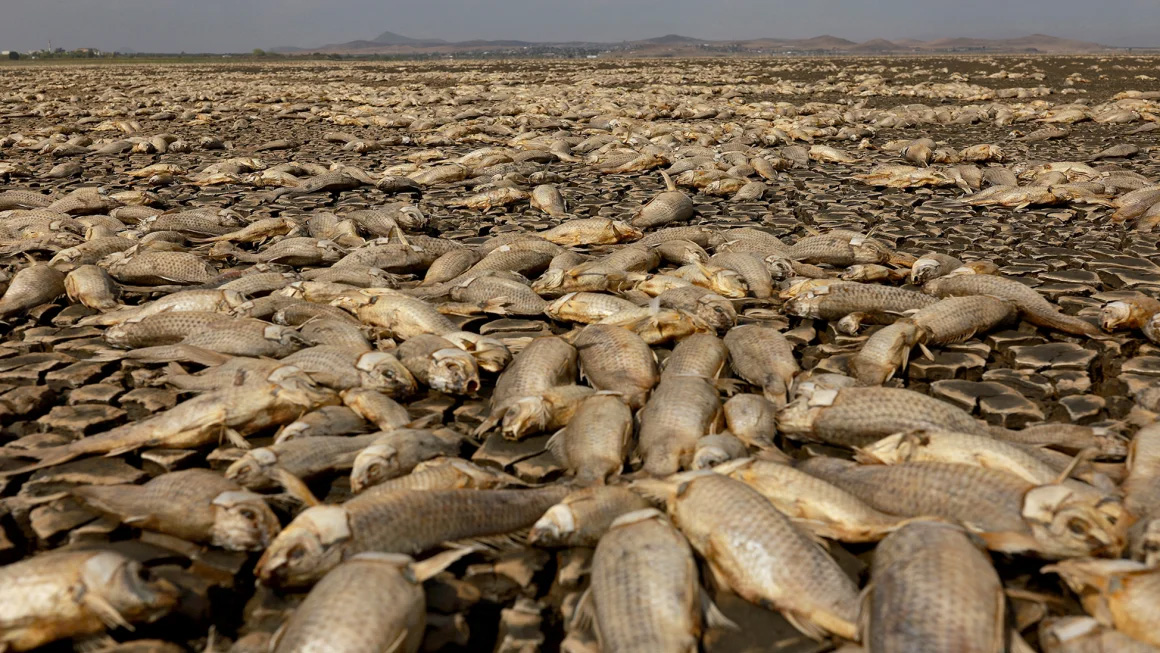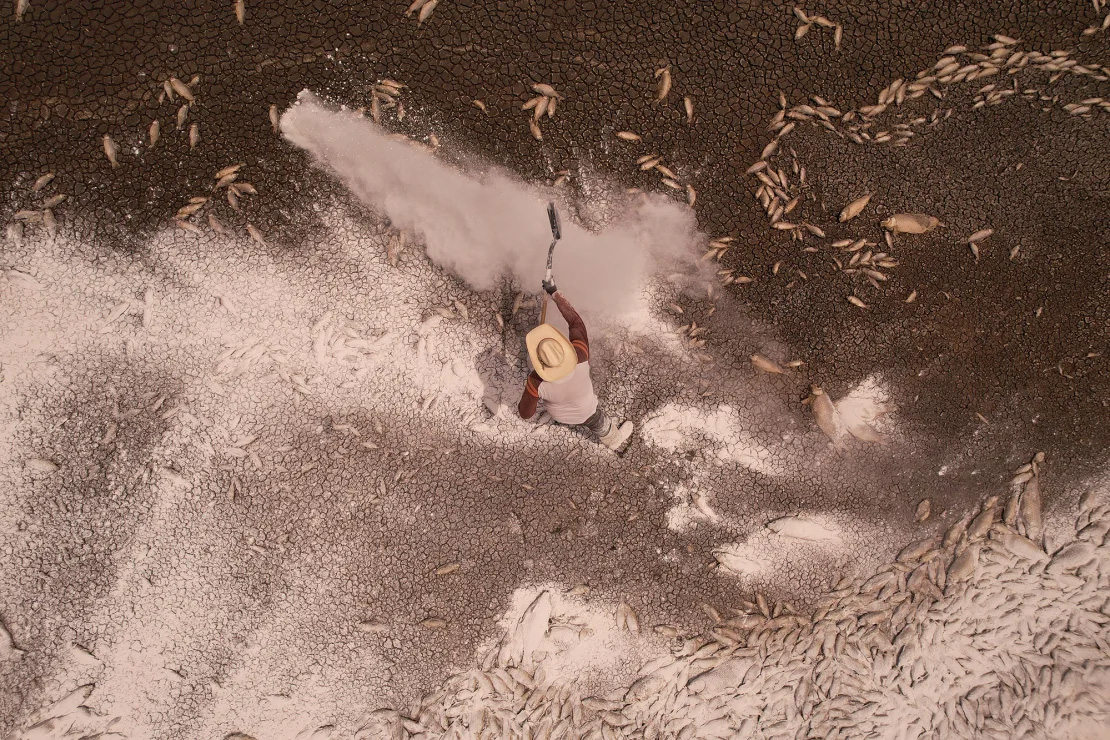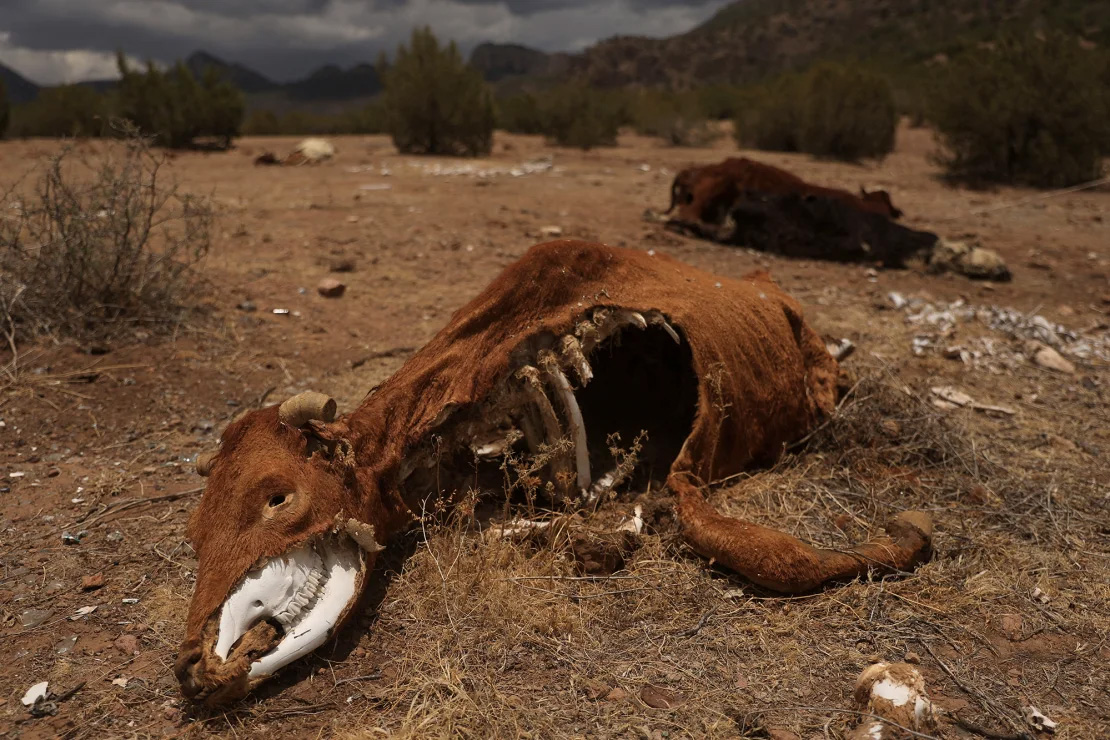
Thousands of dead fish have blanketed the surface of a lagoon in Mexico’s northern state of Chihuahua, with local officials blaming an intense drought.
The fish deaths at the Bustillos Lagoon, by the town of Anahuac in Chihuahua, came during long dry spells and as temperatures have climbed above 40 degrees Celsius (104 degrees Fahrenheit). The lagoon’s water levels are dangerously low, officials said.
Some form of drought is afflicting nearly 90% of Mexico, the highest rate since 2011, according to government data. Chihuahua state has been hit particularly hard with most of its territory engulfed by the most extreme levels of dryness.
There was much less water in the lagoon for the fish to live in, and the remaining water was of poor quality, according to Irma de la Pena, head of the Ecology Department in the city of Cuauhtemoc.
“When the amount of water decreases, the pollutants become more concentrated and therefore they also affect the species that live here,” De la Pena said.
Mass fish deaths in the area have happened in previous years when the lagoon dried up, stranding fish.


Livestock, including cows and donkeys, have also perished as dams run low and farmers struggle to secure water.
Heat and drought have become so severe that many people who rely on agriculture have packed up and left.
“It’s very abandoned because since it doesn’t rain … they no longer dare to continue living here,” said Jesus Maria Palacios, a raiser of livestock in Cuauhtemoc.
At the lagoon, local authorities are racing to cover the dead fish with quicklime, concerned their rapid decomposition under the baking sun could endanger public health by attracting insects and spreading disease. They are asking local organizations to help.
“What we need is support, especially with the potential we have for a health issue,” said Saul Sausameda, president of the Anahuac community.